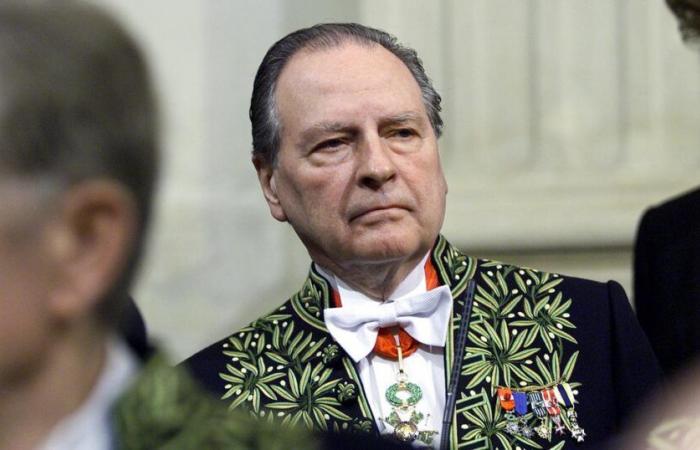Prince Gabriel de Broglie has died at the age of 93. He was a French jurist and historian, great defender of public broadcasting and the French language.
Prince Gabriel de Broglie died at the age of 93. He was a French jurist and historian, great defender of public broadcasting and the French language. Member of the Academy of Moral Sciences since 1997, then of the French Academy since 2001, occupying the chair left vacant by Alain Peyrefitte, Prince de Broglie was the fifth immortal of his family to sit under the Dome. He was also chancellor of the Institute from 2006 to 2017. He belongs to the younger branch of this great house of distant Piedmontese origin which has given so many statesmen, ecclesiastics, marshals and scholars to the France.
After studying with the Oratorians of Pontoise then at the Institute of Political Studies in Paris and at the ENA, he joined the Council of State in 1960 as an auditor, then he participated in several ministerial cabinets from 1962 , before starting a career in public broadcasting from 1971 which he ended as general director of the ORTF in 1979 then president of the INA from 1979 to 1989 and president of the National Commission for Communication and Liberties (CNCL), ancestor of the CSA, between 1986 and 1989.
Also read
Gabriel de Broglie: “You don’t have to be a feminist to feminize the language”
He has always been very concerned about questions of Francophonie and the French language, having held various positions in organizations defending the Francophonie, notably defending French, a language of great culture, affirming how regrettable it was that high-level researchers level use English in their popular works or their courses, in particular those of the Collège de France, then considered a prestigious institution for the influence of French.
But this did not make him an adversary of multilingualism, quite the contrary since he pleaded for the learning of a foreign language from primary school, setting himself apart from the Anglo-Saxons who, while giving lessons in openness and of tolerance to the entire planet, only learn their mother tongue at school. French was, writes Gabriel de Broglie, a source “of wonder” for him: “I felt a deep and intimate feeling for the Frenchman which was not love with its disappointments, nor devouring passion, but wonder”.
-An “aristocratic and Catholic liberalism”
Gabriel de Broglie also left a work as a historian, in fidelity to his family tradition, “Orleanism”a little-known liberal and conservative school of thought in France. He was a distant relative of Duke Albert de Broglie, defender of a liberalism different from other liberals. The historian Jean-Marie Mayeur summarized: “Thiers is liberal, like Broglie, but the first embodies the anticlerical liberalism of the Revolution, the second an aristocratic and Catholic liberalism”.
Also read
Anglicisms, feminization, spelling corrections… The Dictionary of the French Academy, a work of its time
Gabriel de Broglie attempted to revive this forgotten movement, faithful to a British model which could have avoided the horrors of the chronic instability of the Third Republic. He notably wrote on the July Monarchy, Guizot and Orleanism, a doctrine whose importance is much greater than one could imagine, inspiring in particular the « dualism » of the Fifth Republic, as René Rémond recalled in his History of the rights in France : “The Constitution inspired by General de Gaulle seemed, a century or more later, to restore the regime of Louis-Philippe or restore existence to the Constitution of 1875” (before these laws of 1875, designed by the Duke de Broglie, inspired by W. Bagehot, were distorted by the Republicans, in particular Jules Grévy from 1879).
On this sequence “Orleanist”which is also a forgotten history of true liberalism (before the neoliberal excesses of the 1980s), Prince de Broglie notably published in 1979 a Political history of the Revue des Deux-Mondes from 1829 to 1979, Orleanism or the Liberal Resource of France, then a biography of Madame de Genlis (1985) Grand Prix Gobert from the French Academy and in 1990 a biography of Guizot who won the prestigious Ambassadors’ Prize. Then a biography of the marshal of Mac Mahon (2000) and an essay on The July Monarchy (2011). A great bibliophile, since 1980 he has chaired the Society of French Bibliophiles. He was also honorary president of La Renaissance française.






